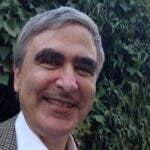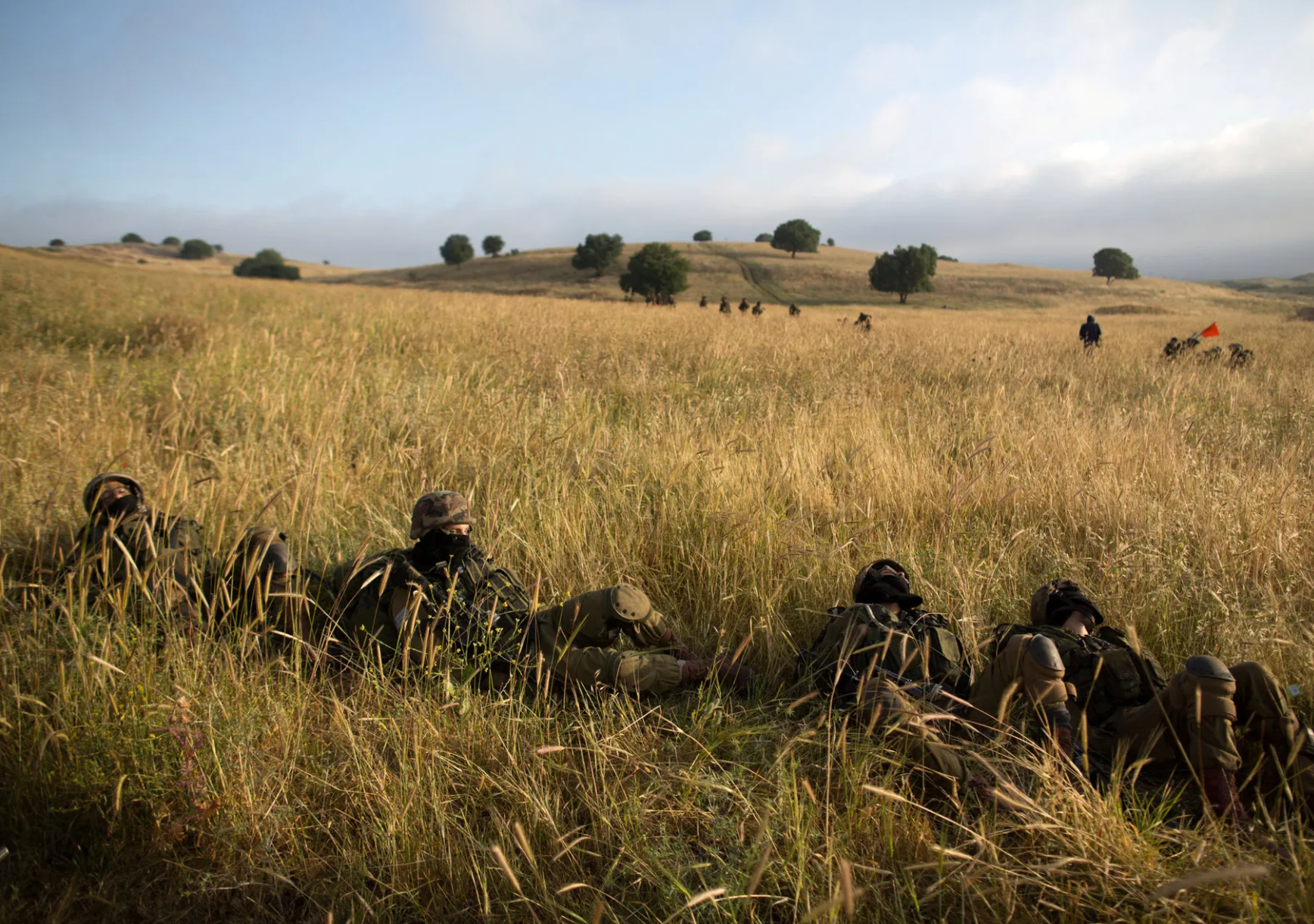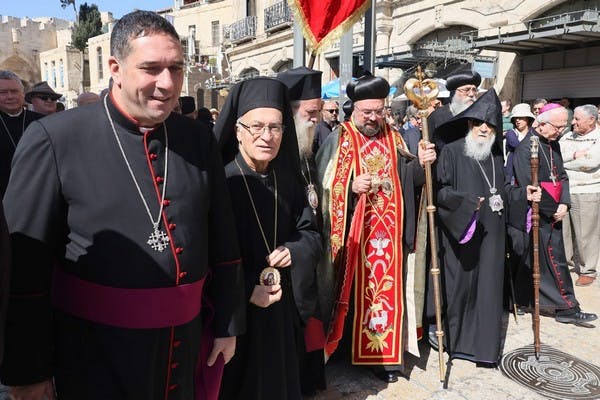Published: 3 March 2023
Last updated: 5 March 2024
Nasser Nawajah was documenting Israel's abuses against Palestinians in the West Bank when he was accused of assaulting a police officer.
A field worker for Israel’s leading human rights organisation, B’tselem, has pleaded not guilty to charges of assaulting a police officer in a case with far-reaching implications for the international community’s ability to monitor the actions of Israeli soldiers and settlers in the occupied West Bank.
Nasser Nawajah, 40, a well-known figure in the Israeli human rights community, denies punching a police officer in his home village of Susiya in September 2021. He opted not to seek a plea bargain even though a guilty verdict could land him in jail for up to seven years and Palestinians are hardly ever acquitted in Israeli military courts.
While Nawajah was facing military prosecutors inside a drab courtroom last Thursday, more than 50 Israeli Jewish protesters demonstrated outside in solidarity with him, chanting “Nasser, Nasser don’t despair, the occupation will end”.
“I know it will be hard, but I’m innocent. I’m fighting for my truth and I will continue to fight,” Nawajah told The Jewish Independent from his home in Susiya on Friday.
Although local and international attention is focused elsewhere these days, the stakes in the trial are high. Villagers facing an imminent threat of expulsion by the Israeli military in the Masafer Yatta region rely on Nawajah to bring their plight to the attention of the world.
Nawajah has, through his work, and at considerable personal risk, led the way in shining a spotlight on how Israel oppresses Palestinian civilians in a remote part of the West Bank.
Nawajah’s backers say he is being framed to intimidate human rights defenders and test the response of the international community.
The trial could also prove to be an escalation in what critics say is a crackdown in recent years against documentation of abuses against Palestinians that has seen Israel define six Palestinian civil society groups as terrorist entities and deport Human Rights Watch official Omar Shakir.
Israel denies any such crackdown, with the Foreign Ministry saying it grants unfettered access to rights groups but does not tolerate terrorist organisations fronting as human rights groups. It claimed the banned Palestinian groups were fronts for the Popular Front for the Liberation of Palestine.
In response to a query by The Jewish Independent Media, the IDF spokesman’s office said Nawajah “was prosecuted for assaulting a police officer during a riot in Susiya in Sept 2021. According to the indictment, the accused hit the officer and fled the scene.”
Nawajah’s backers say he is being framed to intimidate human rights defenders and test the response of the international community.
“I’ve known Nasser for 20years, I know him very well. It sounds as if they’ve made it up or deliberately framed him,” says David Shulman, a veteran peace activist and a professor at the Hebrew University specialising in the Indian subcontinent.
“He has never in my experience, and I’ve been with him in many kinds of events, assaulted a soldier or for that matter anyone else.
“I don’t know the details of this particular case but I know Nasser well. He’s a non-violent human rights activist trying to protect his land, village and family and is totally committed to non-violent resistance.”
Authorities have stepped up pressure against Nawajah over the past half year in tandem with Israel’s efforts to start emptying Masafer Yatta of more than one thousand Palestinians - destitute herders and their families. Their aim is to repurpose the land exclusively for military use as a prelude, according to West Bank land observers, to handing it over to settlers.
As Nawajah himself has documented, the military has dramatically increased its push for Palestinians to relocate through means including movement restrictions and checkpoints, heightened demolitions and the conducting of live fire training exercises around the villages. At the same time, it has restricted access of human rights workers, B’tselem says.
Still, Nawajah managed to get to flashpoints, photographing the run up to and actual demolition of a school late last year, with shocking footage of small children escaping through a window after police fired at least one stun grenade.
In an earlier incident, in Tuwani village, he filmed a settler arriving in a jeep with soldiers and then opening fire with a soldier’s gun, casting doubt on army claims that soldiers act impartially when it comes to incidents involving settlers and Palestinians.
“It is because of such things that they try to shut me up and follow me," Nawajah said. He also directs a group of other civilians who use cameras to document the army and settlers. Nawajah helped B’tselem compile a daily list of army activities that impacted on residents in the firing zone who, from a legal standpoint, can be expelled at any moment.
To the embarrassment of the army, Nawajah was also instrumental in revealing that troops had struck a Palestinian home with gunfire during a training exercise.
B’tselem says the army in Masafer Yatta is engaged in the war crime of “forcible transfer” under the Fourth Geneva Convention. The army stresses that Israel’s Supreme Court upheld the area’s designation as a firing zone and found that the Palestinians have no ties to the area, even though they have lived there for generations.
To the embarrassment of the army, Nawajah was also instrumental in revealing that troops had struck a Palestinian home in Khalat al-Dab’a village with gunfire during a training exercise.
“Much of the truth will be lost” if Nawajah is imprisoned, says Nidal Younes, head of the Masafer Yatta local council. “He’s always there documenting the violations.
“He’s the most active in human rights. People call him day and night and he comes and documents. People see that the violations are documented and they can turn to lawyers. He gets support for us locally and internationally. Our situation would be much worse without him.”
Settler leader Yochai Damri, head of the Mount Hebron Regional Council, who has called for demolition of Masafer Yatta villages on the grounds they are illegal, takes a different view of the activities of B’tselem and other rights groups.
He accuses them of fomenting problems between settlers and Palestinians. “I have been here for 40 years and the best period in our relations with our neighbours was before the extremist actors came,” he told The Jewish Independent Media.
But in an area where the deck is so overwhelmingly stacked against Palestinians, it seems that Nawajah’s scrutiny is not welcome. Last August, a force of soldiers came to his house at night, arrested him and handed him over to the Shin Bet security agency.
A Shin Bet agent warned him “not to cross red lines” and said that he was “making problems for the army,” Nawajah told The Jewish Independent. The Shin Bet and army spokesman did not respond to requests for comment by Israeli media at the time of the incident.
After Nawajah was arrested, soldiers invaded Tuwani for several hours to safeguard settlers as they held prayers in a yard on private Palestinian property they claim as an ancient Jewish holy site.
Nawajah says that he is more vulnerable to being framed than Jewish staffers of B’tselem. “It’s easy for them to go after Palestinian fieldworkers because they can use military law against us, which doesn’t protect us. The others have civilian law to protect them.”
Still, he vowed to continue his work.
He went into human rights work, he explained, “because I grew up in Susiya. We suffered from demolitions and attacks by settlers. My house was destroyed as a child. I chose this path to resist the occupation and to tell the story of the communities in the south Hebron hills who suffer from the occupation.”
Photo: Nasser Nawajah (Keren Manor)




